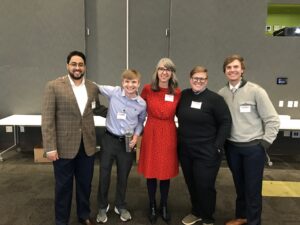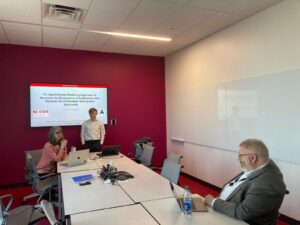How do human behaviors and choices affect the performance of engineered infrastructure systems?
Civil engineering infrastructure systems are built to serve the public, and, as a result, the performance of these systems depends on feedbacks among natural resources, infrastructure, and society. Research in the Sociotechnical Systems Analysis (STSA) Lab investigates sociotechnical systems, where human behaviors, decision-making, resource availability, and infrastructure performance are inextricably linked. This research asks and answers the question “How do human behaviors and choices affect the performance of engineered infrastructure systems?”
The STSA Lab has developed agent-based models of sociotechnical systems to simulate feedback mechanisms and adaptive behaviors among consumers, water infrastructure, and environmental resources. Ultimately, we want to capture loops in which human behavior affects water infrastructure, and infrastructure performance feeds back to affect human behavior. Our goal is to capture and predict instability, fragility, and tipping points in urban infrastructure and water resources systems.
Our research also explores optimization models and algorithms to manage the sustainability, security, and resilience of complex infrastructure systems. Agent-based models, water system models, and optimization methods, including evolutionary algorithms, are coupled to identify management strategies that adapt to sociotechnical dynamics. See our research interests for descriptions of how we are applying agent-based modeling, infrastructure modeling, optimization, and statistical modeling for sociotechnical systems analysis. You can find outcomes of this research on our publications page, Google Scholar, and github repository. Find Dr. Berglund’s CV here.











